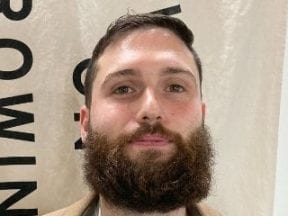Having founded Viahart, a manufacturer of educational toys, in 2010, Molson Hart learned his products were being illegally produced and sold by others. He realized the problem, intellectual property theft, extended far beyond Viahart. And that prompted the launch of his second company.
He told me, “I founded Edison Litigation Financing in 2017 with my brother, a computer science guy. Our company finds businesses experiencing intellectual theft. There are a lot of crooks knocking off products.”
Edison locates potential infringements, contacts the infringed party, and arranges lawsuits for damages. It earns a fee for that service. Viahart sells mainly through Amazon. It recorded nearly $9 million in sales in 2021.
Molson and I recently discussed both companies. The entire audio of our conversation is embedded below. The transcript is edited for clarity and length.
Eric Bandholz: Tell us about your business.
Molson Hart: I founded Viahart in 2010 as an educational toy brand. For the most part, everything we sell is about inspiring confidence and capability in children. Our primary sales channel is Amazon, although we do have an ecommerce site. We sell a building toy called Brain Flakes, which does things that Lego can’t. It’s for kids between three and 13. We also sell Goodminton rackets and Tiger Tale toys.
I have a second company, Edison LLC, that does ecommerce-focused litigation financing for intellectual property theft.
We’re based in Austin, Texas.
Bandholz: Let’s start with Goodminton. How did you come up with the name?
Hart: When selling online, you’ve got to have a brand. One of the best ways to create a good brand and to take full advantage of word of mouth is to have a catchy name that sticks with you. We were selling a racket game similar to Badminton, and I thought, “Can we make a name that’s funny, memorable, and makes people laugh?” We decided on Goodminton, instead of Badminton.
Bandholz: What are the pain points of selling on Amazon?
Hart: Sometimes Amazon falsely identifies sellers as doing search or review manipulations — a pain point that happens probably quarterly. If we’ve got a hero SKU like Brain Flakes, our bestselling product, Amazon says, “Yeah, we’re going to put that in position 32 when customers search your brand name because you manipulated search results.” There’s no recourse, and there’s no explanation for how you can solve that issue.
If you’re starting, it’s pretty brutal because shipping costs are high. For us, it’s not bad because we’re scaled up. When shipping from Asia to the United States. We’re using 40-foot containers, so we have reasonable shipping prices.
We used to be able to do an email blast for reviews and stuff like that, and now there aren’t early review rewards on Amazon, so you need pay-per-click ads and sponsored advertising. It can be expensive. We don’t do paid social marketing to drive customers to Amazon. We only pay for ads on Amazon. Launching a new product needs to be differentiated and innovative in some way.
Bandholz: How do you handle knock-offs and intellectual theft?
Hart: I used to have an office in China. The first knock-off we ever had was before our trademark was registered. Someone in China used our trademark, Brain Flakes, for an interlocking disc product. I couldn’t do anything because our trademark hadn’t been registered. It turns out it was someone in that office, one of my Chinese employees. I ended up suing her, and then two years later, she did it again, and I had to sue her again. I found out that another employee was doing it, too.
I had three employees in China, and two of them were counterfeiting me and selling our brand’s products on Amazon. The third guy wasn’t. When I finally found that out, he and I weren’t working together. I sent him $5,000 to say, “You’re the man for not doing that when the other two were.” He’s a good guy.
After suing my employees, I was able to stop infringement. I knew that other people had those problems, so I founded Edison Litigation Financing in 2017 with my brother, a computer science guy. Our company finds businesses experiencing intellectual theft similar to what I just described. There are a lot of crooks knocking off products.
We connect brands dealing with infringement with a lawyer, who does the filings. The brand doesn’t have to pay any money. We take a percentage of the money that comes back. Our business evolved and now offers reporting, which is cool because we sign up lots of clients to pay us for reporting, and when we notice an opportunity for a lawsuit, we can use our reporting data in the case. We have a growing SaaS reporting business, and since my brother is good at programming, we have an excellent tech suite. Our lawyers use it, and increasingly, our customers do as well.
We take all the risks. So in exchange for earning a chunk of the money when it comes back, we pay all the legal fees, and should you be counter-sued, that’s on us. That’s the value proposition. We are turn-key, so you don’t have to worry about it. We gather all the evidence, and we do all the analysis. I have a warehouse in Texas, and hundreds of counterfeit products go to that warehouse every day. The items get shipped to that warehouse, and we open them up and take photos. Those photos end up becoming the evidence.
Bandholz: So you use your software to scour the web and find infringers?
Hart: Yes. We’re always looking for people who have exceptional cases. When that happens, we’ll reach out. We also have a $99 per month marketplace reporting service. For instance, if you have a brand selling on Amazon, you pay us monthly, and we monitor Amazon and combine the regular reporting with everything that goes into our lawsuits. So you get the best of both worlds.
We monitor all the major marketplaces. We scour Shopify, Amazon, eBay, AliExpress, and Walmart for fake versions of products. One of our clients pays us for 15 different marketplace locations. Each business is structured differently. Some people are like us and mostly use Amazon. Others sell their retail with the big brands.
Another way our business makes money is by handling photo copyrights. People don’t know this, but if you take a photo and register its copyright, and then someone else comes in and uses that photo, it depends on what the context is, but the damages for that are high. If I were to steal one of the Beardbrand photos to sell Molson beard cream, I would get in a lot more trouble than if I buy Beardbrand from whatever store you have and then sell it on Amazon. It’s not cool to steal people’s photos. Photography is expensive. It takes a lot of time and a lot of work. You do get compensated when people steal your photos.
Bandholz: Where can people learn more about you and reach out?
Hart: My website is MolsonHart.com. You can follow me on Twitter, @Molson_hart. We’re also at Viahart and Edison Litigation Financing.




